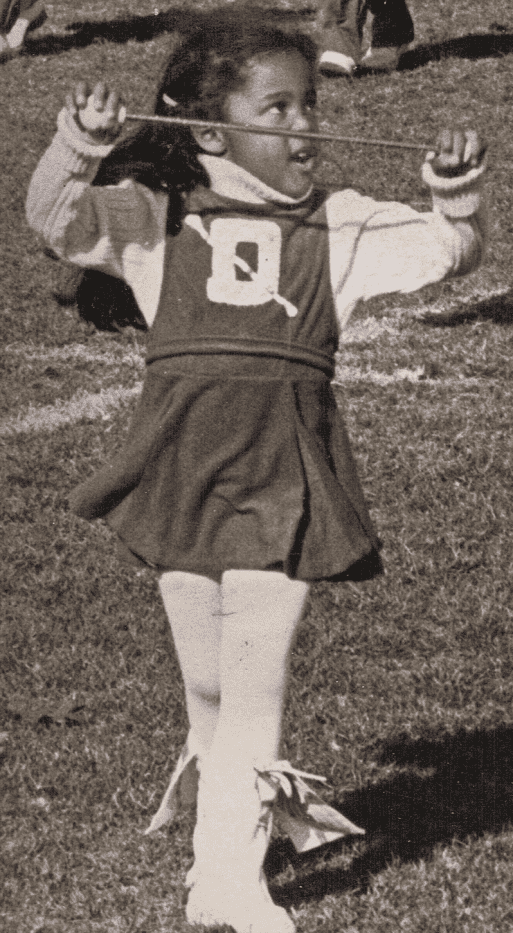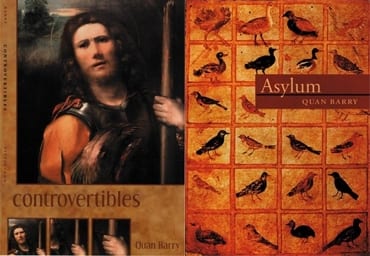
Author Quan Barry as a child
Credit: wnyc.org
Born in Saigon and raised on the north shore of Boston, poet and novelist Quan Barry is the author of four poetry books and a recipient of the Agnes Lynch Starrett Poetry Prize. Her second book of poetry, “Convertibles,” published in 2004 by the University of Pittsburgh Press, was praised for its refined lyricism. In the collection, she explores cultural objects taken out of their usual contexts and placed in new settings. Doug Flutie’s famous Hail Mary pass and Rutger Hauer’s role in Blade Runner are examined through the lens of the Tibetan Book of the Dead. Samantha Smith, Richard Nixon, the Shroud of Turin, Igor Stravinsky, the resurrection of Lazarus, and the 1984 Apple Computer Super Bowl commercial all appear in Quan’s poems as cultural objects to be repositioned and recontextualized.
In Barry’s poem “the oboe in Handel’s largo from Xerxes as elegy,” the largo from Handel’s 1738 opera “Xerxes” is the cultural object at hand, functioning, in the poem, as an elegy. The poem is included in the “Ritual” section of Kevin Young’s anthology of poems about grief and loss called “The Art of Losing: Poems of Grief and Healing.”

Credit: diaCritics.org
In the poem, the poet’s memories of playing the oboe in elementary school dovetail with the memory of the death of a classmate’s parents:
“…in our second season both your parents died though I still looked for them gaunt and ligneous on the stoop, their frail hands
pianissimo and waving.Through the oboe I came to know things: dolce and sorrow, why an aragonaise is like a blue flame dancing, or how an adagio is sheened like moonrise.”
In an interview with diaCritics magazine, Barry said:
“I suppose if poetry has any inherent power, it’s in the fact that it’s often short and richly rendered, and in our fast one-time-use consumer culture, poetry is often language that has been labored over in the best sense, so it requires us to use different neurons than what our culture often requires us to use.
I also think one of the strengths of poetry is that it’s not results-driven. Poetry that is trying to spark a certain specific emotion in the reader often feels over-determined.”
Barry follows this ethos in her own poetry; she uses objects and memories, including her oboe in “the oboe in Handel’s largo from Xerxes as elegy,” without an agenda, and the result is the evocation of mood and feeling.

 “the oboe in Handel’s largo from Xerxes as elegy,” by Quan Barry
“the oboe in Handel’s largo from Xerxes as elegy,” by Quan Barry


 How Dare You Die Now!
How Dare You Die Now!
 Debating Medical Aid in Dying
Debating Medical Aid in Dying
 “Help Me, Helen”
“Help Me, Helen”














